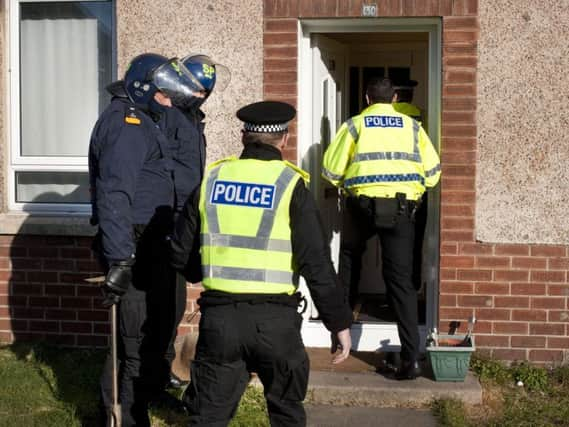Chris Marshall: We should listen to police in the battle against drugs


Much of the daily business is made up of petty offences carried out by those whose lives have been blighted by drink, heroin or both.
Locking up addicts with no appreciation of the underlying health conditions which fuels their offending has - for years - been shown to be a policy which has spectacularly failed.
Advertisement
Hide AdAdvertisement
Hide AdThe issue is among those taken up by the Scottish Police Federation in its “manifesto” released ahead of next month’s Holyrood elections.
The SPF, a staff association which represents 98 per cent of rank and file officers, has called for a new approach to tackling drugs which would promote treatment over punishment for those caught with illegal substances.
While not backing decriminalisation, the SPF advocates a system which would see the imposition of disposals requiring participation in health and education programmes, with “traditional criminal sanctions preserved for those preying on the vulnerable and peddling misery”.
The police are at the frontline in the battle against drugs. If they are telling us the current mission has failed, then we should listen to alternatives. But we should also not turn a blind eye to drug use deemed recreational and innocuous.
Many a young life has been ruined by cannabis even if that drug doesn’t necessarily lead on to other more damaging substances.
Last year Police Scotland said officers would hand out more on-the-spot warnings for petty offences - including cannabis possession - in a bid to speed up Scotland’s justice system.
Treating low-level crime with Recorded Police Warnings means officers no longer have to submit a report to the procurator fiscal for such offences. But while that move helps free up time for our over-burdened police officers and courts, we should not ignore the damage drug use of all kinds can have and the long-term financial impact it has on the NHS.
Another idea floated by the SPF is that of a “social responsibility levy”, essentially a charge which would be paid by football fans, concert-goers and others to help cover the cost of policing at their events.
Advertisement
Hide AdAdvertisement
Hide AdThe SPF said the charge would apply to “any commercial activity or industry whose activities have a disproportionate impact on local communities”.
While there is no doubt set piece events such as Sunday’s Old Firm game bring added pressures for our emergency services, that is what they are paid for.
Over many years both Strathclyde Police and Police Scotland have shown themselves adept at planning and managing not just football matches, but larger one-off events such as the Commonwealth Games and the Ryder Cup.
A new levy would see the taxpayer being charged twice for the public service being provided by the police.
It’s also difficult to know where the line should be drawn in what constitutes police activities associated with a particular event.
Should football fans be asked to pick up the tab for policing operations which may be connected to their match, but have only a tenuous link to the average law-abiding person’s match day experience?
The idea of a levy is an interesting one, but a non-starter.